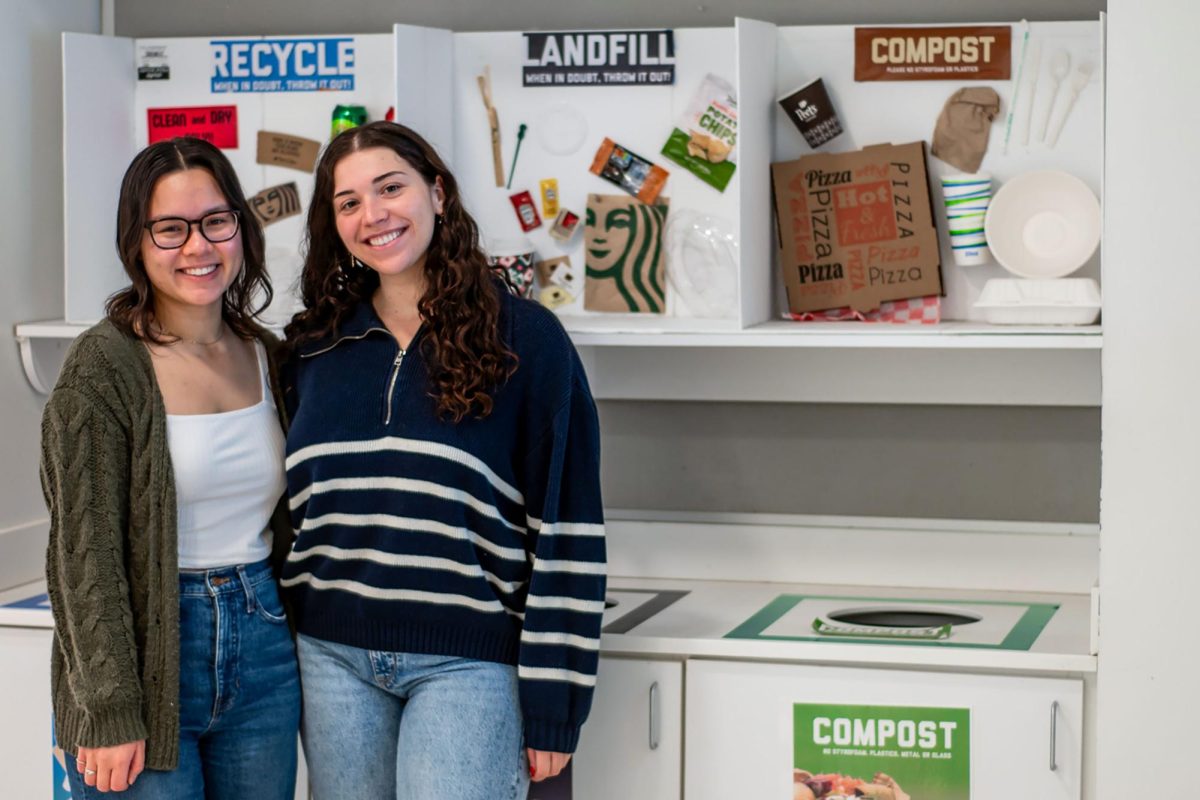Two students designed a new composting station installed in District House last month to promote sustainability on campus.
Caylee Chan, a senior majoring in environmental sustainability science and public health, and Hannah Silber, a 2023 public health alum, added a compost bin that features pictures of compostable items, also known as a shadow bin, so students know what can be thrown out in January. The addition of the bin to the dining area was part of the Undergraduate Sustainability Research Fellows program and, in combination with the current back-of-house compost bins, expands the sustainability effort in the dining halls.
Chan said she and Silber audited the materials District House used to serve food in fall 2022. While they found most of the materials were compostable, there were no student-facing compost bins available in the residence hall basement.
“We started to make a shadow box, and we did some research on some other universities that have sustainability programs in their dining halls, and we saw that they also use shadow boxes,” Silber said. “So we made this prototype that’s now in District.”
Colin O’Brien, a sustainability associate in the Office of Sustainability, said the office has worked with GW Dining to provide supplies, signage and training allowing for back-of-house composting, totaling 20,000 pounds of compost per month. O’Brien said the Office of Sustainability worked with GW Dining to ensure their materials were compostable.
“The timing of the Undergraduate Sustainability Research Fellows shadow box project aligned perfectly with the discussions about implementing front-of-house composting at District House,” O’Brien said in an email.
Chan said she and Silber designed the compost bin, but the Office of Sustainability provided advice and installed the physical prototype.
“There’s so much behind the scenes of working with GW Dining and getting through all the hurdles we have to get through with facilities and staff who picks up the waste because everyone has to be trained properly,” Silber said. “Honestly, the Office of Sustainability is doing everything they can and they also have the Compost Educators, which is also a pretty big program now.”
Silber said she hopes to encourage education to help students use on-campus compost centers.
“I think familiarity is one of the biggest things that we want to achieve and want to give students the tools that they need to be able to feel a part of like the sustainability culture on campus,” Silber said. “If we could expand that as much as possible, and make it visible, that’s also our goal because one shadowbox isn’t as useful as we want it to be.”
Silber said she hopes to expand the shadow boxes into additional units in District House and in the University Student Center.
“It takes time for behavior to change,” Silber said. “So people who have been going to District for years or even if they’re new, they’re used to interacting with trash and recycling.”





